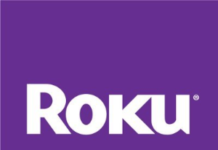The shared services agreement between Raycom Media and MCG Capital that brought together three Honolulu television stations was challenged by the Media Council Hawaii. The FCC has determined that due to public interest in the matter, the proceeding will be treated under “permit-but-disclose” ex parte rules.
In doing so, the Commission sided with the Media Council over the two television companies, which wished to keep the proceeding on a restricted basis.
HITV License Subsidiary Inc., the license subsidiary of MCG, had argued for restricted status, but the FCC said, “Contrary to the assertion of HITV, we believe that classifying this proceeding as permit-but-disclose is in the public interest because the proceeding raises issues upon which the public has a demonstrable concern, especially within the affected market. In view of this and in order to assure the staff’s ability to discuss and obtain information needed to resolve the issues presented expeditiously, adoption of modified ex parte procedures is appropriate.”
In a blog, Davis Wright Tremaine attorney David Oxenford noted that this treatment of the Honolulu case signals that the FCC is taking a serious look at such local combinations as part of this year’s Quadrennial Review of media ownership regulation.
RBR-TVBR observation: Many despise these sorts of arrangements, arguing that even if combined stations have their own news programming, the news comes from one controlling management perspective and diminishes diversity of viewpoint and consumer choice.
Members of the broadcasting community note that without such arrangements, many smaller stations would fail, particularly in smaller markets, and a failed station completely eliminates diversity of viewpoint and consumer choice.
It seems that the current FCC is willing to consider the financial challenges facing broadcasters in the current competitive and economic environment, and the jury is out which way the Commission might go on this. That makes it all the more important for broadcasters to use the process to make a convincing case to make sure the regulatory framework encourages rather than diminishes the chances of financial survival.




